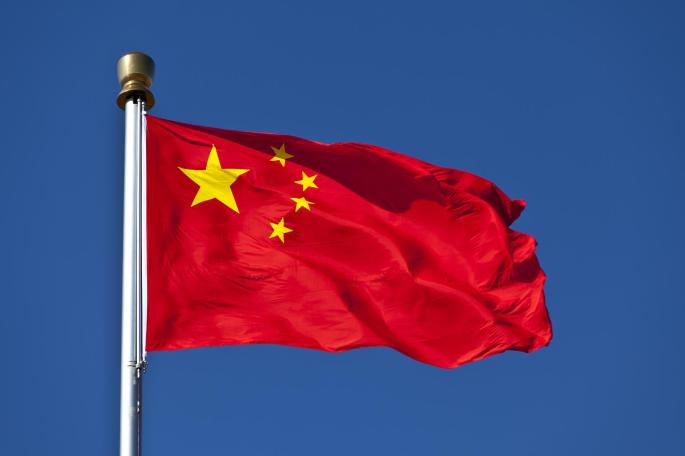Passengers who have enjoyed the entertainment on British Airways flights may have used headphones made in the bleak and abusive sweatshops of a Chinese prison factory, a former inmate has claimed.
The startling allegations suggest that China-based suppliers to British Airways, Qantas and Emirates may ultimately have sourced headphones from a prison in southern China where inmates were subjected to electric shocks for failing to keep up with punishing production schedules.
The revelations are the latest to expose the harsh realities of China’s prison factories – production facilities that are openly exploited by the prison authorities as a source of income.
Outsourcing companies based in China routinely turn to these factories as a supply of low-cost manufacturing: efforts by Western companies to investigate the darker corners of their supply chains often miss – or choose to ignore – branches of the chain that end with Chinese prison inmates working as slaves.
The output of the factories ranges from complex electronic components and children’s ski jackets to Hallowe’en masks and skincare products, according to those who have toiled on the production lines. Many of the goods make their way to supermarkets and thrift stores in the West.
In interviews, former inmates of China’s prison and “re-education through labour” systems have described conditions that amount to slave labour in which they work 70-hour weeks for a salary of about 80p per month.
The cost of their prison uniforms, priced at about £14, are deducted from their salary, meaning they are paid nothing for the first year.
Qantas said today that it had begun an investigation into claims about the headphones, which were made by a New Zealander who served four years for manslaughter in Dongguan prison.
Danny Cancian told the Australian Financial Review that he and other prisoners knew he was making disposable headphones for BA, Qantas and Emirates because they bore the familiar airline logos and were packed into boxes with each company’s name on them.
Failure to meet targets resulted in prisoners being placed in solitary confinement or taken outside and tasered, said Mr Cancian.
“It’s a very cruel environment,” he said. “You wake up every morning wondering if you are going to survive the day.”
Another inmate, who asked not to be named, said he made inductors used in electrical appliances as well as the headphones.
“Yes, I made them for the Australian airline Qantas, the one with the kangaroo as its logo,” he said. “We also made them for Emirates, British Airways and lots of others.”
BA said that all of its suppliers were “subject to a rigorous procurement process prior to appointment” and that they enforce compliance to “robust” labour standards policy throughout the duration of the contract.
BA confirmed that its supplier of economy class headphones was the UK-based Linstol.
“We have spoken with Linstol and they have advised us that they only use credited factories when producing headsets,” said a BA spokesman. “When a supplier contract is signed an audit which is internationally recognisable is conducted. The audit monitors supply chains and ensures that the highest standards of procurement are maintained.”
A Linstol spokesman said: “We signed a contract to supply British Airways in May 2008. We have never made a single product in a prison facility.”
The company is the main manufacturer of headsets to the airline industry, supplying 100 million last year.
Long Prosper, a Taiwanese-owned company that is based in Dongguan — the city where the prison is situated — is understood to have supplied headphones to BA before Linstol won the contract. Long Prosper could not be reached for comment.
Prison factories are legal in China, as are the extremely low wages paid to the inmates. But the threat of physical punishment for slow work is illegal, and inmates of the re-education through labour system are imprisoned without trial.
Fang Hong, who served a year in a labour camp prison factory after penning a derisive cartoon, told The Times that he had been forced to make Christmas lights for sale to the West. He too described a variety of physical punishments for slow work.
The Australian Financial Review report cited a representative from the Dongguan City Joystar Electronic Company as saying that his company used prison labour for big orders and made 300,000 sets of headphones for Qantas early last year.
They were allegedly made to fill an order for Airphonics, the Vietnamese company that Qantas confirmed was its main supplier.
Qantas said it had been unable to substantiate the allegations but had suspended arrangements with Airphonics and launched an investigation.
“Qantas is very concerned by allegations in today’s media and we have immediately suspended our current sourcing arrangements until we can investigate more fully,” the airline said.
It added that the claim that its supplier used a third-party company in China to help to fill orders “contradicts the verbal and written assurances we’ve had from this supplier that their supply chain process met our standards — including the ethical treatment of workers”.
“Qantas places very strict conditions on suppliers and we conduct regular audits of factories ourselves to ensure those conditions — which include no forced labour — are met.”
Emirates said it was satisfied that there was “no evidence of any unethical practices in the headset manufacturing process”.

